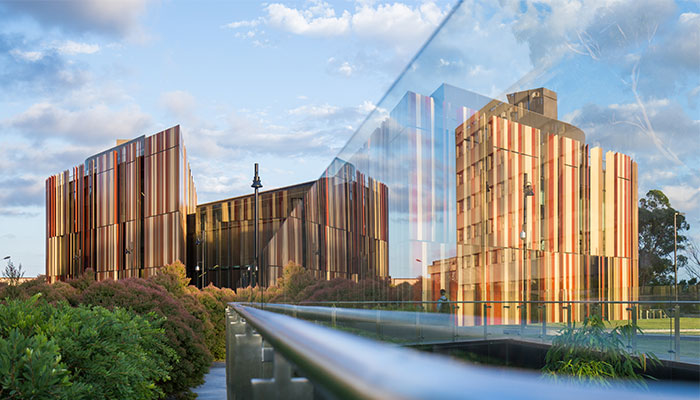- Research reveals new details about the world’s only known social beetle with a life-time devoted queen and worker caste
- Findings provide critical insights into social evolution and what factors drive individuals to sacrifice their own opportunity to reproduce in order to help others
- High relatedness is necessary for individuals to organise in this way – a sterile worker caste has not evolved only in response to ecological conditions
For individuals to sacrifice their opportunity to reproduce in society, they must first be closely related, according to new research on the Australian wood-boring ambrosia beetle, Austroplatypus incompertus.
A ‘queen’ ambrosia beetle mates with only one male, before tunnelling deep into a live Eucalyptus tree, where she starts farming fungus for food and reproducing. The queen and her adult female workers cooperate to maintain their home, cleaning and defending against predators and along with younger offspring, they excavate a complex network of tunnels.
But for both the queen and her workers, living within tunnels comes at the cost of mobility, as they lose their claws and some further leg segments. While still able to move around inside their home, they are unable to leave, and in the case of workers, unable to ever mate.
“We know that bees, ants and termites have castes, with particular roles they might carry out for life. In the most extreme case, we see individuals give up the chance to reproduce to serve the colony,” said Shannon Smith, Honorary Postdoctoral Associate at Macquarie University’s Department of Biological Sciences, Visiting Fellow at the Hawkesbury Institute for the Environment, Western Sydney University, and first author of the study published in Nature Ecology & Evolution today.
“This is the first time we’ve described the details of this advanced form of sociality in a beetle, despite there being close to 400,000 species of beetles in the world.”
“Lifelong devotion of workers is likely key to establishing and surviving in this challenging environment, inside a living tree, and we wanted to understand what drives these beetles to organise their social colony life in this way. Why do these worker beetles give up their opportunity to ever reproduce?”
Years of observation and research began in the early 1990s with co-author Dr Deborah Kent using a range of painstaking techniques to reach the beetles’ habitat inside trees and document their unique social behaviour.
The team, including Macquarie University Associate Professor Adam Stow and Professor Jacobus Boomsma, University of Copenhagen, paired the beetles’ natural history with genetic information to confirm the colonies are established by a single queen who has only been inseminated by a single male. This means that all offspring within a colony are full-siblings.
“The males die very soon after mating, but evidence suggests the queen beetle may live for as long as 40 years, making it possibly one of the worlds longest-lived beetles,” notes Smith.
“Our work confirms that high relatedness among colony members was first needed for a social system with sterile worker castes to evolve,” added Associate Professor Adam Stow.
“In short, by helping your closest possible relatives, you’re helping to pass on your own genes as effectively as when you would reproduce yourself. Once you have this high relatedness established in each colony, then the ecological conditions kick in, with the family members cooperating to survive and thrive long-term, despite the tough conditions inside a living tree.”
This research supports the view that social animals with permanently non-reproductive castes cannot be explained by ecological features alone - high relatedness among colony members needed to be established first.
“The worker beetles don’t give up their chance of leaving the tree – their opportunity to mate – and cooperate just because they can’t survive in the tree by themselves. For individuals to be highly social in the sense that they dedicate their lives to the greater family good, our research supports they first need to be related to each other in the closest possible way” added Smith.
“When it comes to ambrosia beetles, cooperation to the extent that you give up the ability to raise a family yourself will only occur amongst close relatives. Family matters.”
Smith S.M., Kent, D.S., Boomsma J.J. and Stow, A.J., Monogamous sperm storage and permanent worker sterility in a long-lived ambrosia beetle. Nature Ecology and Evolution. April 2018.



